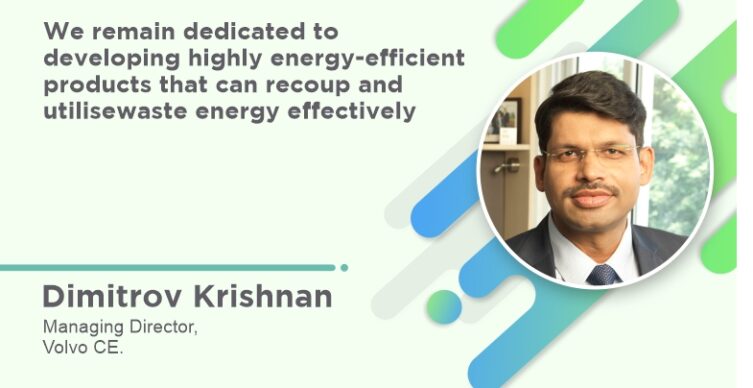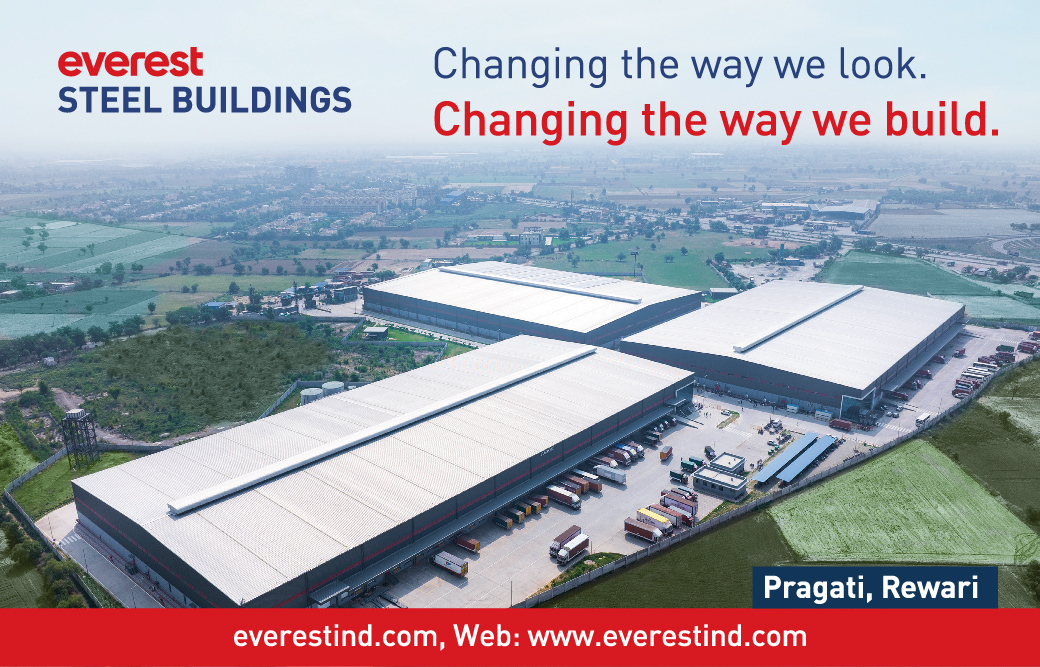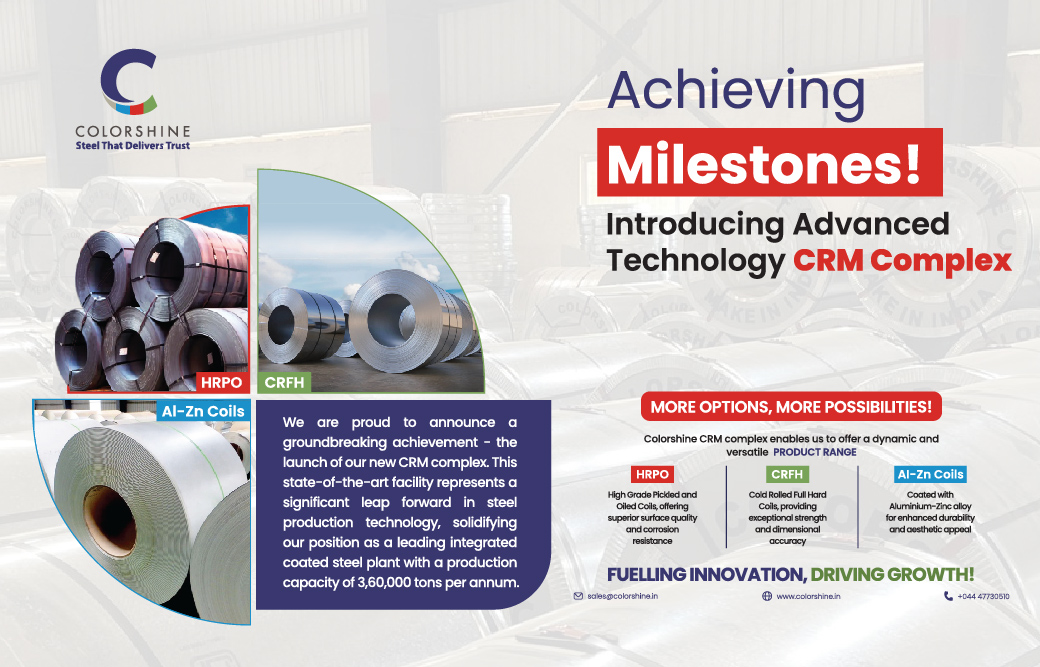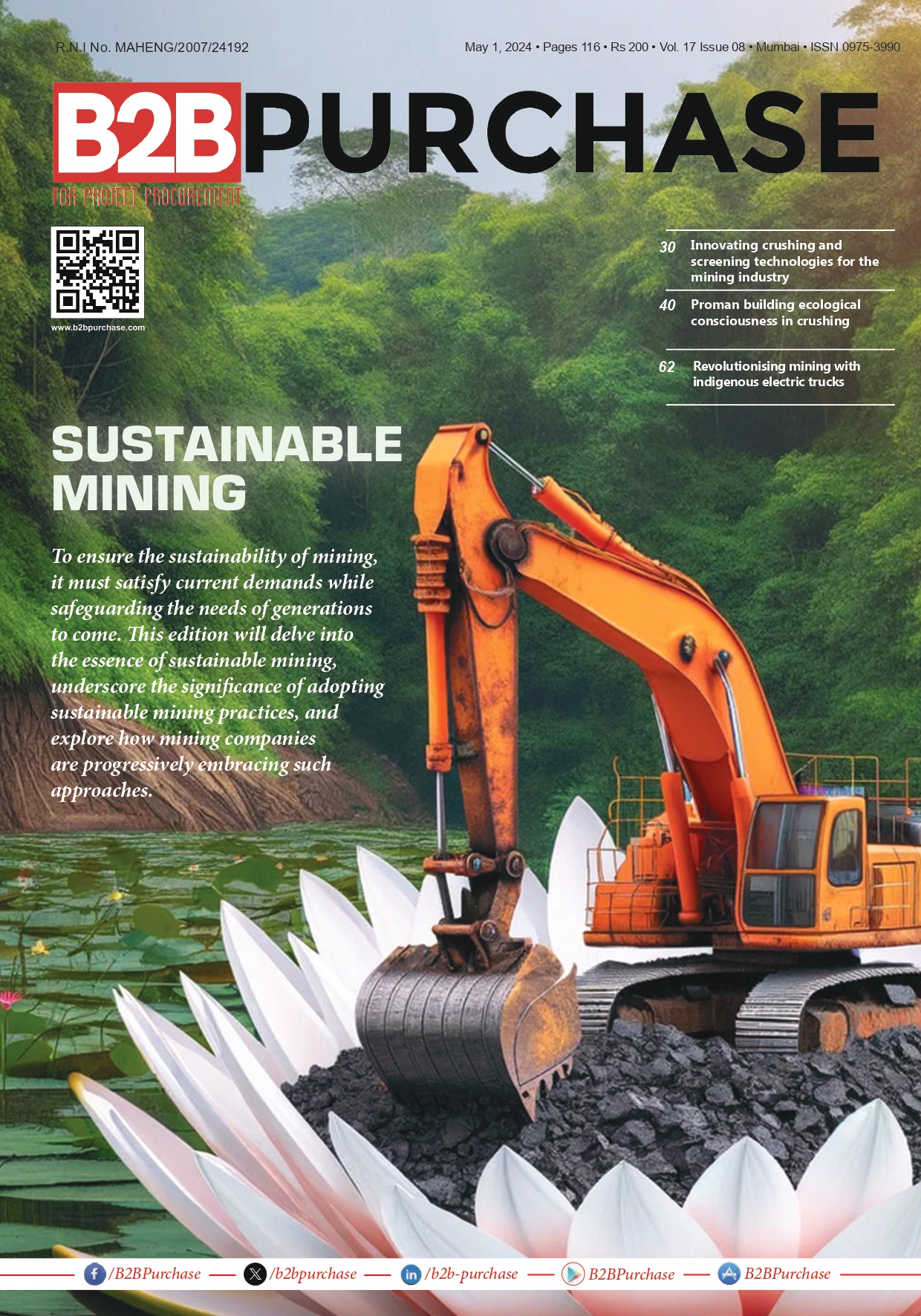We remain dedicated to developing highly energy-efficient products that can recoup and utilise waste energy effectively.
Please share Volvo CE’s perspective on the remarkable surge in mega infrastructure projects, particularly within the road sector.
When evaluating the government’s strategic development priorities, a noteworthy allocation of 10,00,000 crore has been earmarked for infrastructure projects in the current fiscal year. This allocation predominantly targets road construction, with an additional focus on railways and urban infrastructure, particularly encompassing metro systems and airports. The significance of road construction cannot be overstated, as it offers considerable opportunities for advancement in both the National Highways and state highway networks. It will continue to be a defining factor in shaping the trajectory of infrastructure development in India over the next decade.
India is poised for abundant prospects in this sector, encompassing Greenfield projects and expressways and the optimisation and expansion of road infrastructure across the nation. As we endeavour to attain the status of a developed nation by 2047, it is evident that compared to more advanced countries, we are still in the nascent stages of network establishment and fundamental road construction.
Our organisation, Volvo Construction Equipment, stands as a comprehensive contributor to the field of road construction, offering a diverse range of products that span the entire spectrum of activities, from foundational groundwork and barriers to the final finishing touches on roads. We are equipped to address approximately 80-85% of the requirements of contractors operating in this domain. The only elements absent from our portfolio are the manufacturing plants and mixing equipment. Consequently, road construction remains a critical sector where our pivotal role will persist, facilitating the realisation of India’s infrastructure development goals.
How do you foresee the construction equipment market evolving in electrification and sustainability, and what role will Volvo CE play in shaping this future?
Volvo Construction Equipment has a clear global commitment to “building the world we want to live in,” often summarised as “building tomorrow.” To align with society’s ambitions, especially in the face of climate change, major industry players need to lead the way in introducing sustainable technologies. In this context, Volvo CE has pioneered, launching electrified machines as early as 2019, starting with mini excavators and loaders. Globally, we have also announced the cessation of diesel engine development for smaller equipment, focusing on electric and hydrogen-based solutions. In India, our journey toward electrification involves not only electric machines but also addressing the challenges associated with energy distribution for these products, including charging solutions for electric machines and hydrogen distribution for hydrogen-based products. We are collaborating with various partners to address these challenges, and we have already introduced electric machines in the Indian market. Our commitment to pioneering sustainability in the construction equipment industry remains unwavering.
How do you balance offering high-efficiency equipment while keeping the total cost of ownership competitive for its customers?
Efficiency and cost-effectiveness are at the core of our approach. Our commitment to environmental responsibility dates back to 1975 when Volvo Group adopted environmental values. Over the years, we have consistently introduced fuel-efficient products across our range, optimising energy usage in diesel engines and various applications. With the shift towards electrification and other sustainable technologies, energy efficiency has become even more critical, given the limited energy availability in electric machines. Therefore, we remain dedicated to developing highly energy-efficient products that can effectively recoup and utilise waste energy. Total cost of ownership is a crucial criterion for our customers when adopting our products. While our products may have a premium price, they offer significant cost savings over their lifetime, making them the preferred choice for customers who operate their projects, mines, or production sites. As technology evolves, we also focus on providing comprehensive solutions, such as charging infrastructure, to simplify the transition to electrification for our customers.
Volvo CE has introduced its brand-agnostic charging protocol for 48V DC chargers. How does this initiative simplify charging infrastructure for construction projects?
We have taken the initiative to introduce the charging protocol for our 48V DC chargers to the market. Our objective drives this strategic move to kickstart a standardisation process within the charging solutions sector, fostering greater uniformity across the industry. Our primary aim is to incentivise other companies to embrace this shared charging protocol, ultimately streamlining the charging infrastructure for the entire sector.
While we currently do not market 48 Volt machines in India, we are actively engaged in regions where these machines have a more substantial presence. This strategic step aligns seamlessly with our overarching mission to promote the widespread adoption of electric products and advocate for establishing common standards in charging solutions.
The adoption of electric construction equipment is growing rapidly. What challenges and opportunities do you foresee in this area?
In India, the adoption of electric construction equipment is still in its early stages. Customers are showing interest and curiosity in these technologies. As a signatory to climate agreements like the Paris Agreement, Volvo Group shares a commitment to combat climate change. Many other Indian corporates are also dedicated to sustainability. Additionally, the Indian government has set ambitious goals to reduce emissions and promote alternate fuel products. These factors will drive the need for electrification in the construction equipment industry. To facilitate this transition, we are introducing electric machines and offering equipment-as-a-service models, which simplify the customer experience by handling equipment maintenance, repair, and operation. This approach is crucial, given that electric technology may need to be more familiar to our customers. The industry will require solutions like charging infrastructure and more. As the market evolves, we anticipate an increased demand for these solutions. We are committed to pioneering this transformation in India and helping our customers embrace sustainable operations.
How does the Indian regulatory landscape for emissions and safety compare with global counterparts, and what impact does this have on the construction equipment industry?
India faces challenges in regulating emissions in the construction equipment sector. Approximately 50% of our industry remains unregulated concerning emission standards. This contrasts with developed markets where machinery emission regulations cover the entire construction and mining equipment sector. We are actively engaging with the government to address this issue. As the former president of ISIMA (Indian Construction Equipment Manufacturers’ Association), I have been involved in these discussions. While progress is being made, it is too early to predict when regulations will be fully implemented. Emission regulation is crucial for mitigating the environmental impact of our industry and increasing its competitiveness in global markets. Regulatory parity with the rest of the world will make Indian products more competitive for export, contributing to the “Make in India” initiative.
What technological innovations can we expect from Volvo Construction Equipment shortly?
Our focus will remain on innovations related to fuel efficiency and emissions reduction. We are actively working on launching a range of zero-emission and low-emission products. These innovations will encompass electric machines, fuel cell electric products, and alternate fuel internal combustion engine products. Additionally, we will enhance our service-oriented approach, providing solutions beyond the product to meet our customers’ evolving needs. Expect to see continuous technological advancements in these areas.
Could you provide an update on Volvo Construction Equipment’s adoption of hybrid and autonomous machine technologies globally?
Indeed, on the autonomous technology front, we have been pioneers in developing autonomous hauliers—electric autonomous hauliers, to be specific. These were showcased in Bauma Munich in 2019. Subsequently, we collaborated on the Electric Site Project with partners in Sweden, including Skanska. In this construction company, we converted an entire quarry using autonomous technology, achieving 98 percent carbon neutrality. These autonomous products are now undergoing customer trials as we continue to explore opportunities for their implementation.
Regarding hybrid products, we have introduced hybrid excavators, which utilise energy recuperation technology to store and reuse waste energy, resulting in lower overall energy consumption. While these products are available globally, they have yet to be launched in India. We have also introduced electric machines in India. These are examples of our ongoing efforts in these areas.
Are there any expansion plans in the pipeline for Volvo Construction Equipment?
We have been manufacturing excavators, compactors, and pavers in India, and we are soon planning to assemble loaders in our factory, adding to our product lines. India is poised to become the second-largest market by 2030, and we see abundant growth opportunities domestically and internationally. We intend to continue investing in our Indian manufacturing footprint to leverage this potential. While I can’t provide specific details, expansion and growth will be part of our plans in this region.
Spokesperson – Dimitrov Krishnan, Managing Director, Volvo CE
Cookie Consent
We use cookies to personalize your experience. By continuing to visit this website you agree to our Terms & Conditions, Privacy Policy and Cookie Policy.


















